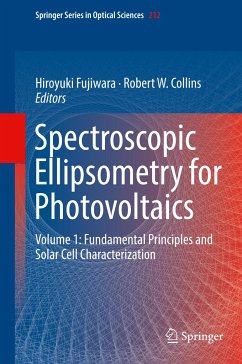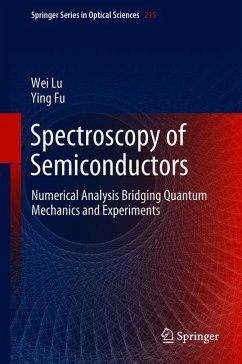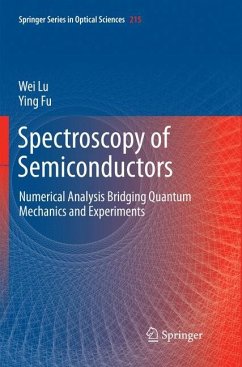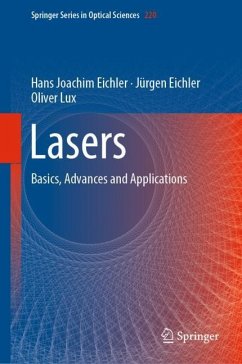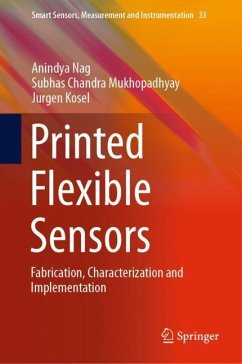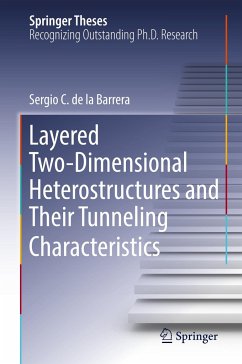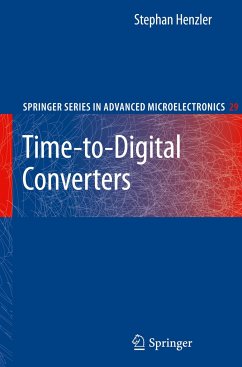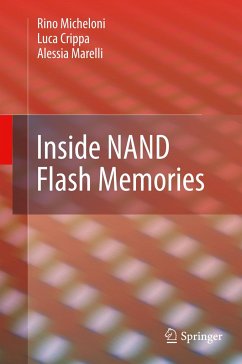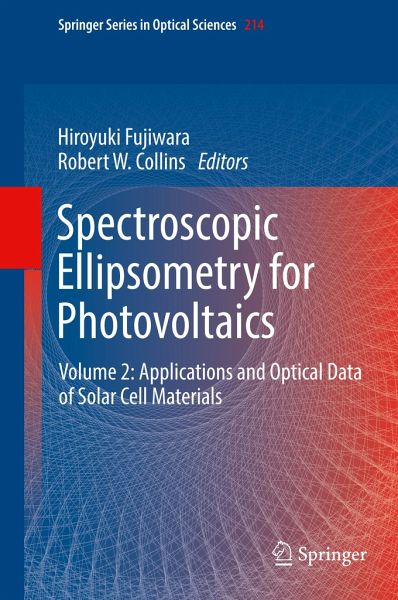
Spectroscopic Ellipsometry for Photovoltaics
Volume 2: Applications and Optical Data of Solar Cell Materials
Herausgegeben: Fujiwara, Hiroyuki; Collins, Robert W.

PAYBACK Punkte
84 °P sammeln!
Spectroscopic ellipsometry has been applied to a wide variety of material and device characterizations in solar cell research fields. In particular, device performance analyses using exact optical constants of component layers and direct analyses of complex solar cell structures are unique features of advanced ellipsometry methods. This second volume of Spectroscopic Ellipsometry for Photovoltaics presents various applications of the ellipsometry technique for device analyses, including optical/recombination loss analyses, real-time control and on-line monitoring of solar cell structures, and ...
Spectroscopic ellipsometry has been applied to a wide variety of material and device characterizations in solar cell research fields. In particular, device performance analyses using exact optical constants of component layers and direct analyses of complex solar cell structures are unique features of advanced ellipsometry methods. This second volume of Spectroscopic Ellipsometry for Photovoltaics presents various applications of the ellipsometry technique for device analyses, including optical/recombination loss analyses, real-time control and on-line monitoring of solar cell structures, and large-area structural mapping. Furthermore, this book describes the optical constants of 148 solar cell component layers, covering a broad range of materials from semiconductor light absorbers (inorganic, organic and hybrid perovskite semiconductors) to transparent conductive oxides and metals. The tabulated and completely parameterized optical constants described in this book are the most current resource that is vital for device simulations and solar cell structural analyses.





